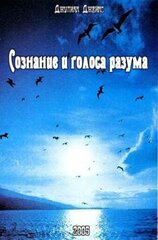ГЛАВА 5. РАЗВИТИЕ ЧЕЛОВЕКА
РОДИЛСЯ ПЕРВЫМ — РОДИЛСЯ БОЛЕЕ СООБРАЗИТЕЛЬНЫМ?
Литература
Belmont, L., & Marolla, F. (1973). Birth order, family size, and intelligence. Science, 182,1096–1101.
Downey, D. (1995). When bigger is not better: Family-size, parental resources, and children's educational performance. American Sociological Review, 60(5), 746–761. Ernst, C., & Angst, J. (1983). Birth order: Its influence on personality. New York: Springer-Verlag.
Ickes, W., & Turner, M. (1983). On the social advantage of having an older, opposite-sex sibling: Birth order influences in mixed-sex pairs Journal of Personality and Social Psychology, 45,210–222.
Paulhus, D., Trapnell, P., & Chen, D. (1999). Birth order effects on personality and achievement within families. Psychological Science, 10(6), 482–488.
Rogers, J., Cleveland, H., van der Oord, E„& Rowe, D. (2000). Resolving the debate over birth order, family size, and intelligence. American Psychologist, 55(6), 599–612. Vaneijck, K., & Degraaf, P. (1995). The effects of family structure and the educational attainment of siblings in Hungary. European Sociological Review, 11(3), 273–292.












